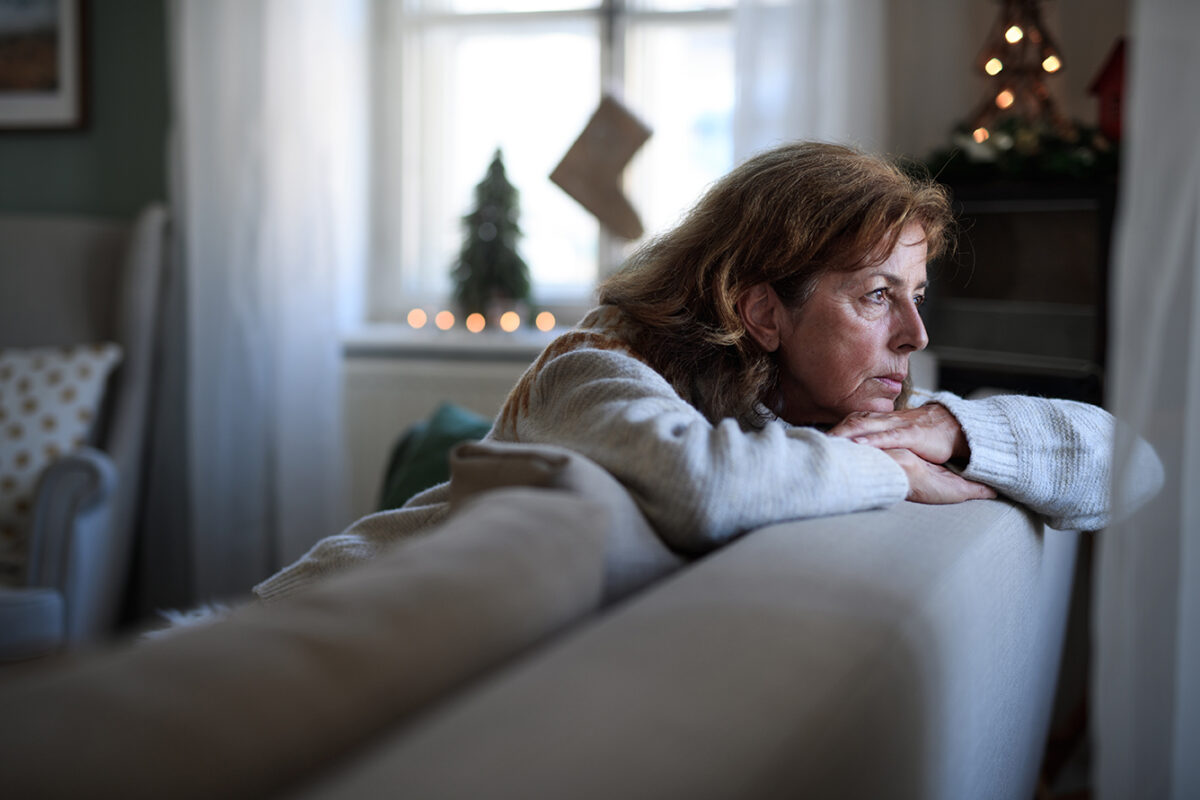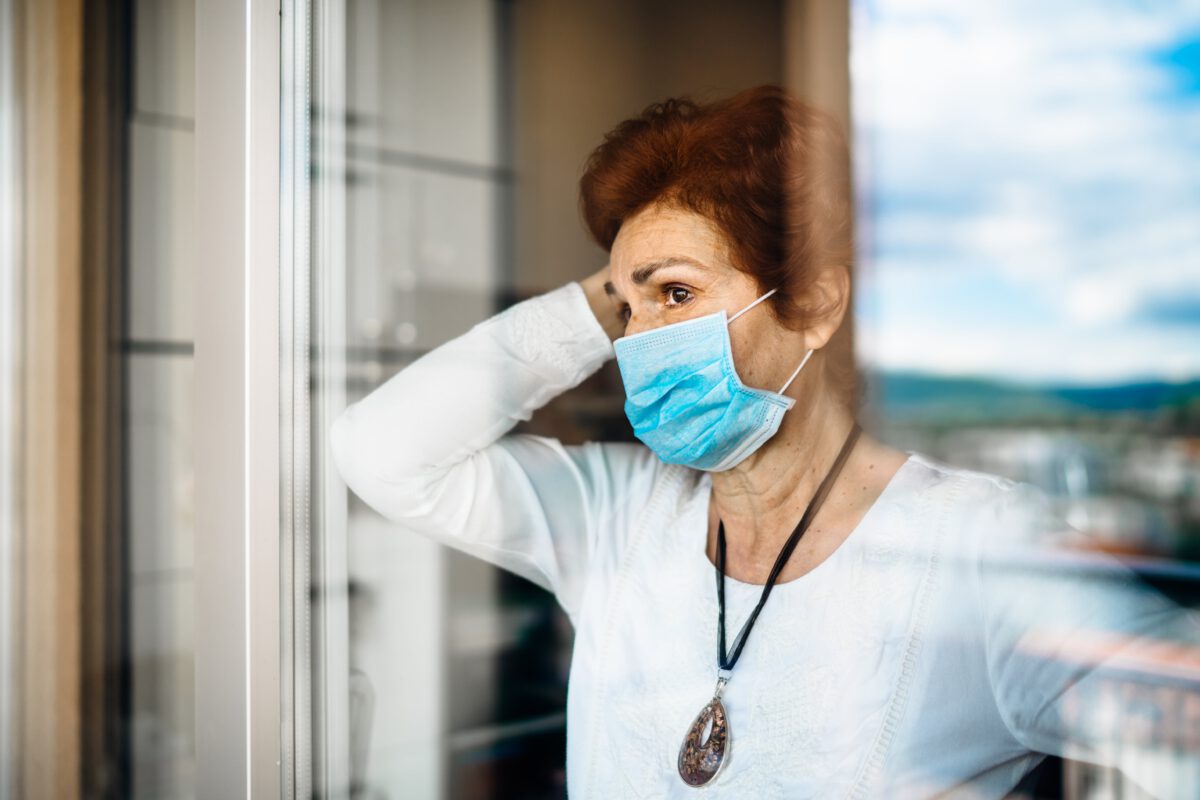Caregiving, the Holidays and COVID
The COVID pandemic roller coaster has been operating since March, forcing us onto the ride and refusing to let us off. We have made adjustments: we restrict our outings into the community, wear masks when we do go out, maintain 6 feet distance and wash our hands until they turn red. We have been forced to accept that the pandemic is as much about loss as it is about health. And while we got used to a little taste of “normalcy” during the warmer months, just as the holiday season approaches, we are again asked to limit our travel and minimize contact with others. Now, rather than anticipating gatherings with friends and family, we must instead ask ourselves: “Should I?”, “Can I?” and “How can I possibly face another loss?”
For caregivers whose loved one is diagnosed with a chronic illness or dementia, it may take great fortitude to muster through the holidays, even during the best of times. The stress of managing the holidays often adds onto the stress of daily caregiving responsibilities, leaving holiday joy as a myth sung of in carols. Enjoying the holidays in the face of COVID may simply feel impossible. Rather than filling with anxiety and dread as the decorations and holiday music fill the stores and airwaves, there are things we can do to restore peace and happiness to the holiday season.
Creating a COVID-Friendly Gathering
Navigating the holidays during COVID is a lot like navigating caregiving: it begins with managing expectations. Ironically, the COVID restrictions may actually help to lessen stress not only for us, but for our loved ones; after all, large gatherings with multiple conversations, which normally may cause increased agitation for a loved one, are not recommended to happen this year.
It is highly recommended to plan for a virtual event this year instead of an in-person gathering. If you do plan on having a small gathering, keep these tips in mind to assure it is following safety guidelines:
We should:
- Wear a mask if there are people coming from outside the home
- Notify our guests prior to the event to check their temperature before leaving the home, and have face masks and sanitizer ready at the door for those who may have forgotten their own supplies.
- Rethink our menu. Gone are the days of grabbing many different snacks from a tray. Instead, we can place the food items into individual paper cups and consider buying single-serve drinks in cans or bottles rather than in a larger container. It may not be the most cost-effective approach, but it can help to reduce multiple contacts on the surface. We should also have plenty of paper napkins available for individual use.
- Strategically place waste containers with lids throughout the entertainment area to contain all used items. No-touch trash cans are especially recommended.
- Remember to have extra hand sanitizer around the house and disinfectant wipes in the restroom to allow our guests to move about freely when encountering door, toilet and faucet handles. We should also consider placing paper towels in the bathroom for one-time use.
- Rearrange our seating, if possible, to allow for freedom of movement as well as social distancing. This year, precaution may be more important than an aesthetic seating design.
- Keep sight of our budget. Perhaps this is the year for a limited gift exchange or maybe even home-made gifts.
Reducing Personal Stress Levels
In many ways, stress is a barometer of how much we feel in control of our lives, and stress feeds on our feelings of losing control. One of the best ways to manage stress, then, is to find ways to reinforce our sense of control. A good way to start is by being realistic. This year, we may have to let go of beloved holiday traditions, at least temporarily. We can instead try to focus energy on creating a COVID holiday plan that is doable. Talking about and planning new rituals as a family may actually add a new dimension of celebration to our holiday, and may help to ease the pressure we feel to make this year “perfect.”
If we haven’t done so already, preparing a “COVID response plan” may help to ease concerns around the holiday. We may want to:
- Pre-plan what will happen if we, as the caregiver, become ill. We should make a list of contacts to call along with their phone numbers and have it readily available. If we are the primary caregiver for a loved one, we can write out his or her care plan, including medications/dosage, preferred daily schedule, and food likes and dislikes.
- Know where to get treatment—such as Urgent Care, the hospital, or our primary care physician—including hours of operations. We can check to see if telehealth is an option, and know where to find the phone number of our preferred drug store.
Managing stress is also about understanding our own needs. Finding time for ourselves during the holidays may sound unrealistic, but that is why it is even more necessary. We can:
- Take care of our physical health by eating smartly and getting enough rest—such as by scheduling downtime or even a nap into our day. We should do our best to hold onto the healthy habits we had before the holiday season.
- Find ways to maintain some structure in our days. The pandemic has turned many schedules upside down, and the holidays often do as well. Following a schedule can help to quell unsettled feelings.
- Think through how we will recognize the religious significance of the holidays. Even if we are unable to attend a service in person, many faith communities have options to attend via social media.
Feeling blue during the holidays
We all have times where we feel down or “blue.” At these times, it is important to:
- Acknowledge our feelings. It is ok to express sadness and loss, even during the holidays.
- Find ways to create community, even if it is virtual. The health effects of loneliness and isolation are real, and it is important to address them.
- Make sure we find trusted sources of information about COVID. We can strive to find ways to avoid the politicization of the virus, understand our risk factors and plan accordingly.
- Be mindful of our blues. The “blues” tend to ebb and flow with time. If we find that the low times are consistently lasting longer and getting more difficult to escape, we should consider seeking professional help from a local mental health community such as Benjamin Rose Institute on Aging’s Behavioral Health Services.





